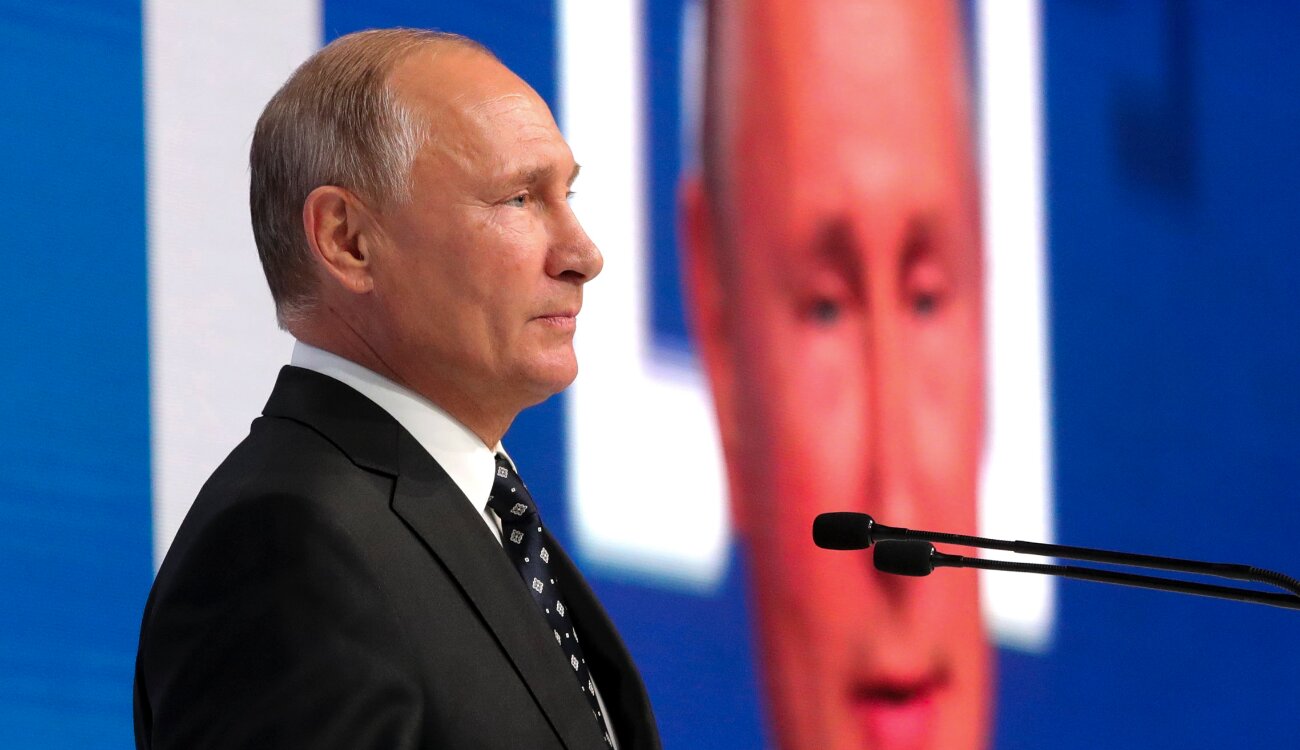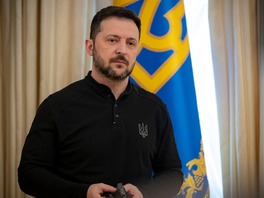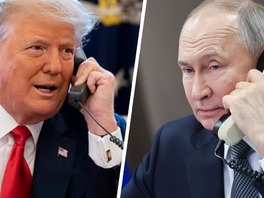Russia gears up for Vladimir Putin's upcoming re-election in March. Although the outcome is predicted, preparations for this ritual consistute an important part of the Kremlin agenda. Notably, Moscow is actively orchestrating the "election" process in Ukraine's temporarily occupied territories. Apostrophe explores in thus article the orchestrated narrative surrounding the Russian president's anticipated victory and its potential impact on Ukrainians in occupied territories.
The Kremlin goals
Putin's reelection in the temporarily occupied territories holds symbolic significance for Russia amid its illegal, unprovoked, and genocidal war against Ukraine. As the dictator seeks a new term at the war's two-year mark, it is perceived as a vote of confidence, with heightened importance in the captured areas of Ukraine.
‘The objective is to convey to the Russian population that the newly acquired territories are indistinguishable from Russia. Despite this goal, it's evident that the strategy has faltered, as it is clear that they are all different. It differs in relationship between occupiers and the local population, as well as the local sentiment towards the Kremlin regime’, Andriy Yusov, a representative of the Main Directorate of Intelligence of the Ministry of Defense, tells Apostrophe.
So the propaganda machine was launched at full speed.
‘They are actively filling the informational space with various propaganda videos and calls to participate in these ‘elections’ right now. There are even cases where participants in these videos are immigrants from Ukraine, claiming that the ‘elections’ will take place not only in the current occupied territories but also, let us say, in Odessa. This means that they are considering expanding military aggression to other regions of Ukraine’, the head of the Center for Strategic Communications and Information Struggle of the Ministry of Culture and Information Policy Ihor Solovei notes Apostrophe.
Passporting failure
Sergey Kirienko, the first deputy head of the Russian Presidential Administration, typically oversees ‘elections’ in temporarily occupied areas. Last September, occupiers developed various mechanisms for ‘voting’ during the so-called ‘regional elections.’
‘The pseudo-elections in September, held in temporarily occupied territories, served as a rehearsal. They involved setting up counterfeit electoral and precinct commissions, along with deploying numerous so called ‘volunteers’ from Russian territory to orchestrate the process’, an anonymous spokesman for the National Resistance Center of the Special Operations Forces tells Apostrophe.
Notably, election commissions in occupied territories are predominantly staffed by individuals imported from Russia, with local collaborators mainly occupying lower-level positions that hold minimal influence.
‘They actively seek locals for appearances, often recruiting marginalized individuals as collaborators in commissions for financial gain. However, control over the process lies solely with curators from the Russian Federation, particularly in the larger – so called district election commissions,’ the spokesman for the Center of National Resistance explaines.
In the trial run of the autumn ‘local elections,’ shortcomings in the Russian system of mimicking elections were exposed. Notably, a slow-paced attempt at passportization failed, despite efforts to compel Ukrainians to acquire Russian documentswhichended in failure.
‘Recent classified reports from Russian security forces in occupied areas to Moscow reveal subpar readiness for executing Kremlin-mandated tasks in the lead-up to the farcical so-called Russian presidential elections. Specifically, passporting has encountered setbacks, prompting the Kremlin to express dissatisfaction and initiate partial rotations and dismissals among those accountable for these processes,’ Yusov said.
As per the Center of National Resistance, passporting in four out of five temporarily occupied regions failed to surpass 50%, with Crimea being the sole exception.
To navigate the situation, Russians permitted individuals holding Ukrainian documents to participate in these ‘elections.’ This deviates from the norm observed in the majority of countries globally, where only citizens possess the right to choose a head of state. Essentially, it signifies a clear acknowledgment of failure on the part of the Russians.
Consequences: Loss of Legitimacy
Russians often adhere to Stalin's adage: ‘It's not about how they vote, but how they count.’However, they aim to present a favorable image for both Russian TV audiences and the international community.
‘The propaganda apparatus in occupied territories utilizes posters, leaflets, Telegram channels, and newspapers, with substantial funds allocated for these efforts. Despite domestic issues like frozen apartment buildings in Voronezh, propaganda remains well-financed. Mass perception will be shaped through media, portraying a sizable voter turnout. Additionally, manipulation aims to depict the "election" outcome approaching 100%’, Solovey asume.
‘Voting’ poses multiple risks for Ukrainians in occupied territories. The primary threat is an audit. All those who vote with a Ukrainian passport will immediately be registered for further processing and possibly repression. The second risk lies in contributing to the legitimation of occupiers' actions.
‘To sidestep involvement in the Russian vote, residents in occupied Ukrainian territories can retreat to rural homes, avoid opening doors, as collaborators on election commissions conduct door-to-door visits. Ignoring, concealing, and possibly misplacing documents, staying off the streets during these days is advised,’ the spokesperson of the Center of National Resistance recommends.
Collaborators involved in orchestrating the ‘elections’ may encounter penalties under Ukrainian law, but a definitive judgment awaits the court's decision.
Elections in occupied territories, at a minimum, cast doubt on Putin's global legitimacy.
‘The involvement of individuals holding Ukrainian citizenshipi nto the Russian national pseudo-elections within temporarily occupied territories, coupled with extending Russian presidential elections to these areas, will unquestionably undermine Putin's legitimacy as Russia's leader. The same holds true for organizations with representatives from these territories. Clear indicators of Putin's delegitimization have surfaced, akin to the situation with Lukashenko. It is crucial not to ignore this reality, but rather to emphasize to our partners that it breaches international norms. Consequently, the objective is to relegate him, minimally, to exile, and optimally, to pursue legal action,’ - Ihor Solovey concludes.





